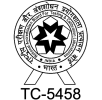Dolomite Testing
Dolomite Testing
- Dolomite consists of calcium magnesium carbonate and hence is called a carbonate mineral. Dolomite rock and dolostones are used interchangeably to refer to the sedimentary carbonated rock that is primarily composed (approx 90%) of dolomite minerals. Dolomite is used commonly in the construction industry, in mortar and cement making. It is an important source of magnesia and calcium oxide. It is also used in pottery and as soil nutrients for agriculture. Despite dolomite’s chemical similarity to calcite (Ca(CO3)), their physical properties are very different. The purity of Dolomite rock is determined by thermogravimetry, wherein the decomposition of its carbonate mineral- calcium magnesium carbonate is quantified. Calcite is more sensitive to acid and this is an important property that comes into play when testing the purity of the dolomite rock. Dolomite is usually tested for Calcium oxide content, Magnesium oxide content, Silica content, Loss on ignition etc.
Accredited, Certified & Recognised by











Testimonials

Anacon Laboratories...with its state-of-Art laboratory infrastructure, well-trained staff, it’s national recognition and accreditations...is a premier lab in environmental, agricultural, and food testing in the country. My best wishes to them!
Dr. Vijay BhatkarPadmashri, Padma Bhushan & Scientific Advisor to Govt of India
GET IN TOUCH
